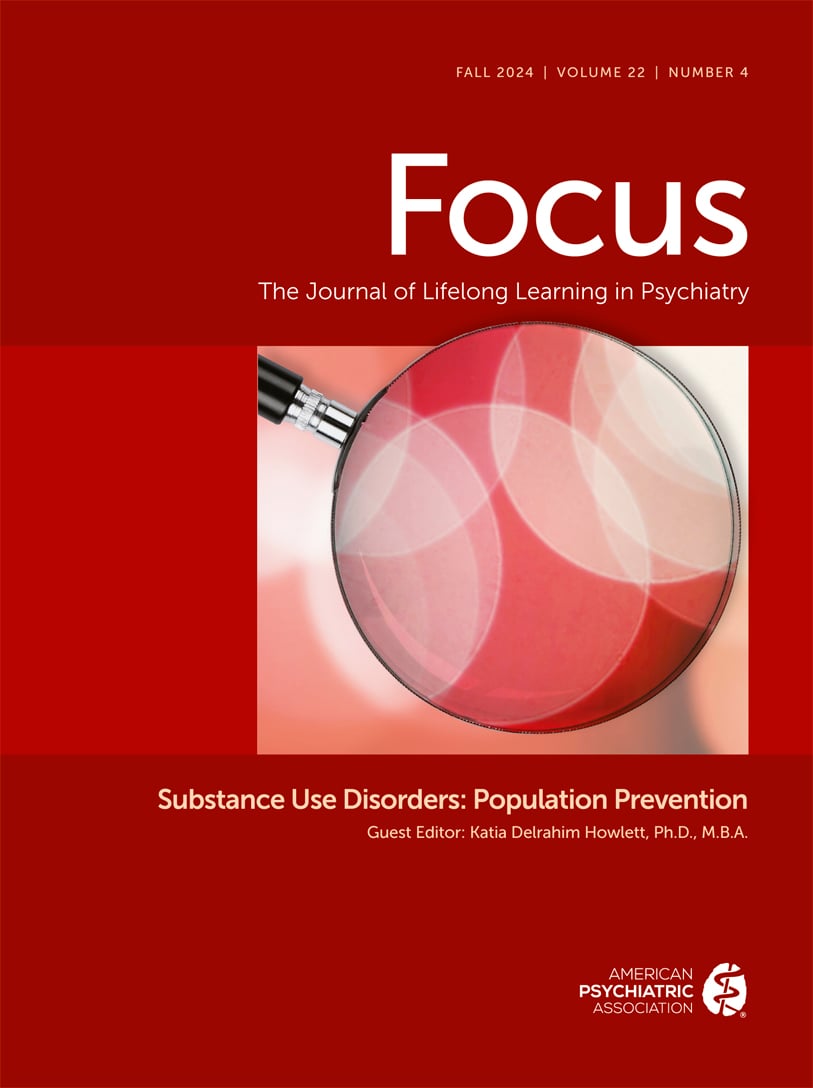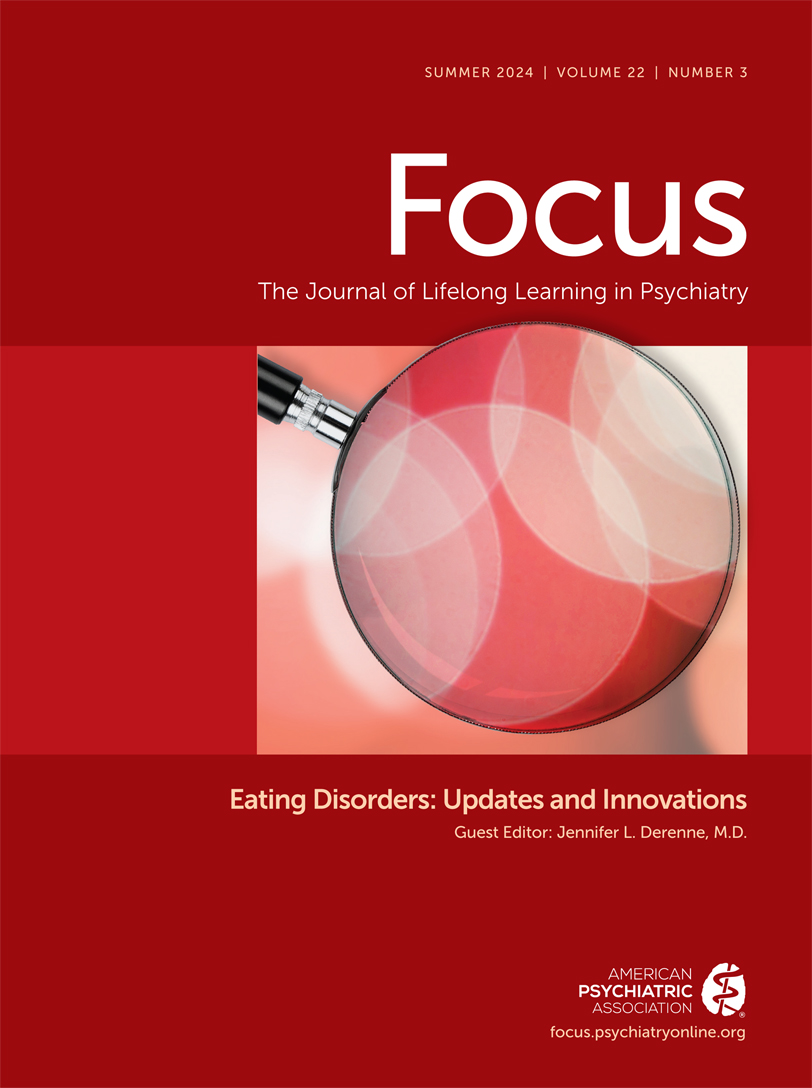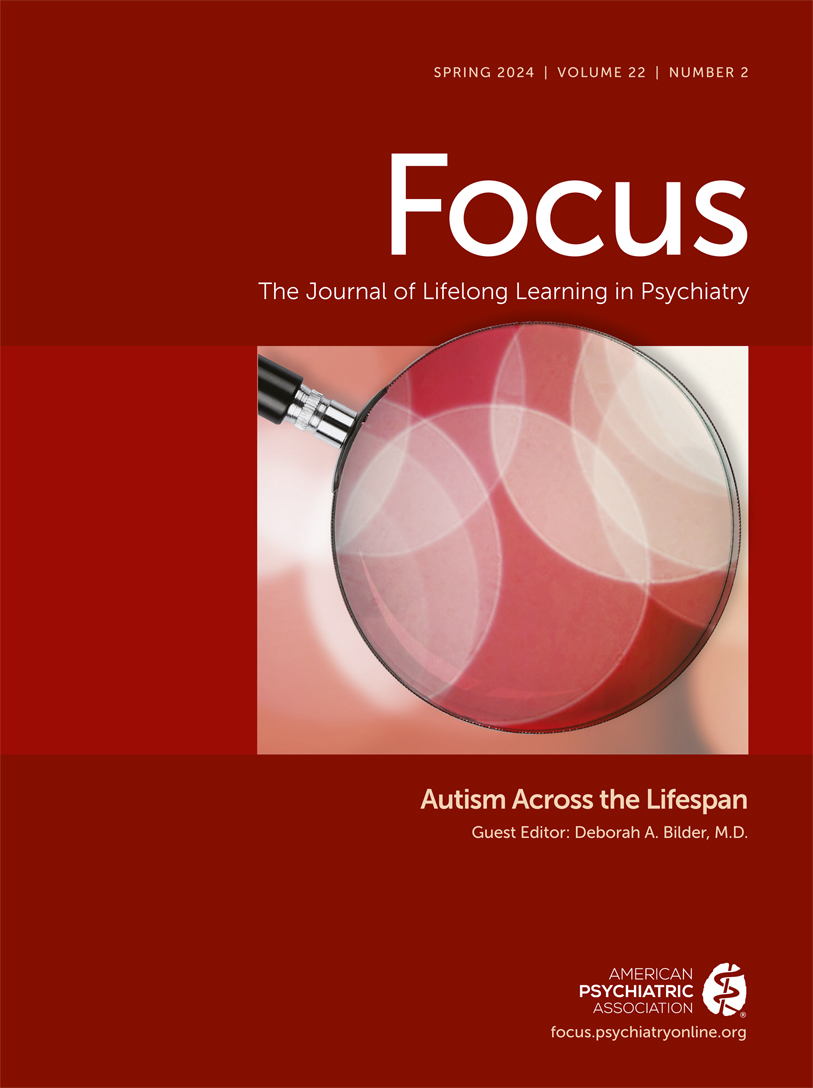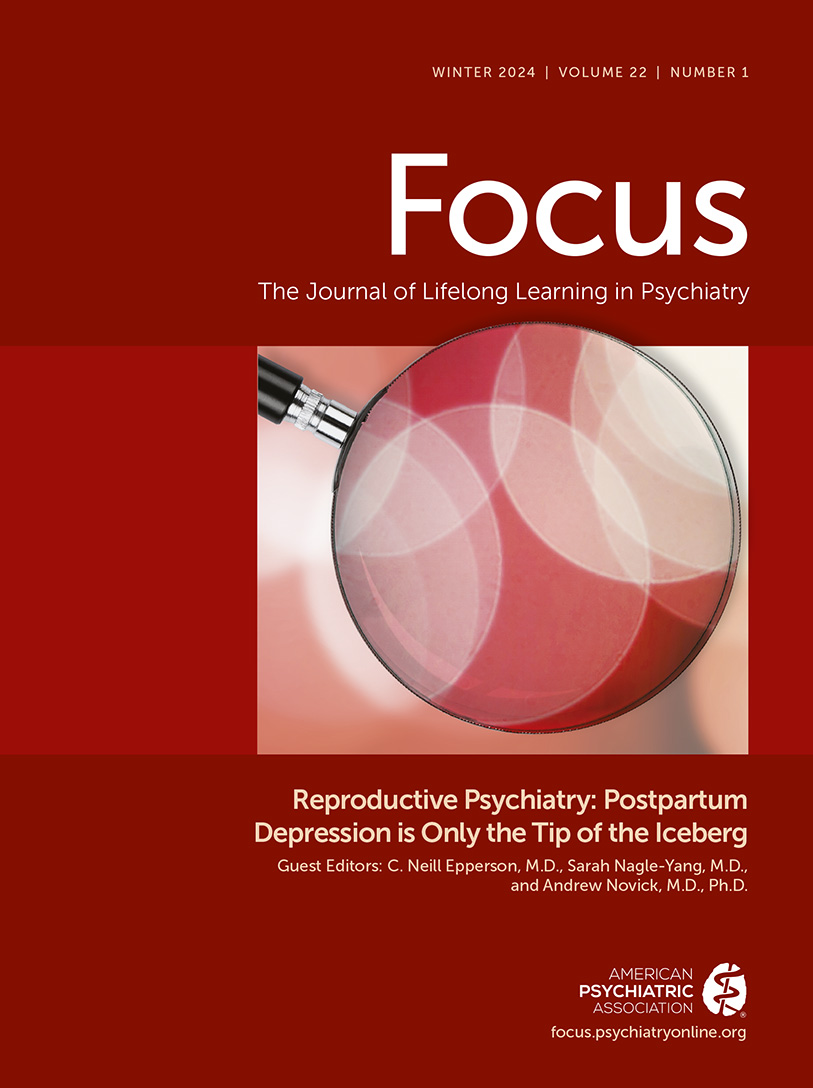Focus
- Volume 12
- Number 4
- October 2014
From the Guest Editor
Clinical Synthesis
Publication date: 01 January 2014
Pages379–387Recommended psychotherapies for treating bulimia nervosa and binge eating disorder have been clearly established, with cognitive-behavioral therapy representing the leading choice. Second line psychotherapies for bulimia nervosa and binge eating disorder ...
https://doi.org/10.1176/appi.focus.120403Publication date: 01 January 2014
Pages388–393Pharmacotherapy is not an exclusive treatment for anorexia nervosa (AN) or the first recommended therapy for bulimia nervosa (BN) or binge eating disorder (BED). Limited randomized controlled trials (RCTs) indicate a very modest benefit for zinc ...
https://doi.org/10.1176/appi.focus.120401Publication date: 01 January 2014
Pages394–400There has been considerable progress in the clinical management of eating disorders in adolescence in the past decade. DSM-5 has been revised to be more sensitive to the clinical importance of the early presentations of eating disorders, which should lead ...
https://doi.org/10.1176/appi.focus.120402Publication date: 01 January 2014
Pages414–415The chapter on Feeding and Eating Disorders in the fifth edition of Diagnostic and Statistical Manual of Mental Disorders (DSM-5) includes several changes to better represent the symptoms and behaviors of patients dealing with these conditions across the ...
https://doi.org/10.1176/appi.focus.120408Influential Publications
Publication date: 01 January 2014
Pages437–449Individuals with anorexia nervosa (AN) engage in relentless restrictive eating and often become severely emaciated. Because there are no proven treatments, AN has high rates of relapse, chronicity, and death. Those with AN tend to have childhood ...
https://doi.org/10.1176/appi.focus.120413Publication date: 01 January 2014
Pages450–458Objective: The authors compared psychoanalytic psychotherapy and cognitive-behavioral therapy (CBT) in the treatment of bulimia nervosa. Method: A randomized controlled trial was conducted in which 70 patients with bulimia nervosa received either 2 years of ...
https://doi.org/10.1176/appi.focus.120410Publication date: 01 January 2014
Pages459–469The paper presents a critical review (with search date 2010) of the major psychotropic medications assessed in eating disorders, namely antipsychotics, antidepressants, mood-stabilizing medications, anxiolytic and other agents. The evidence of efficacy of ...
https://doi.org/10.1176/appi.focus.120415Publication date: 01 January 2014
Pages470–475Objective: The present review examines the extant literature regarding the post-operative development of eating disorders (e.g., EDNOS) in bariatric surgery patients. Method: Internet, PsycINFO, Pubmed, and reference lists were examined to aggregate and ...
https://doi.org/10.1176/appi.focus.120416Publication date: 01 January 2014
Pages476–488Objective: Using Wakefield’s conceptualization of mental disorder as “harmful mental dysfunction” (Wakefield, Am Psychol, 47, 373–388, 1992), we examined the evidence for including obesity as a mental disorder in DSM-V. Method: We searched computer databases ...
https://doi.org/10.1176/appi.focus.120411Publication date: 01 January 2014
Pages489–505Objective: This review attempted to examine the validity and clinical utility of the DSM-IV binge eating disorder (BED) diagnosis across a wide range of validating strategies. Method: Various electronic databases (Pub Med, Psych Info) were searched for terms ...
https://doi.org/10.1176/appi.focus.120412Past Issues
View Issues Archive
Vol. 22 | No. 4

Vol. 22 | No. 3

Vol. 22 | No. 2
